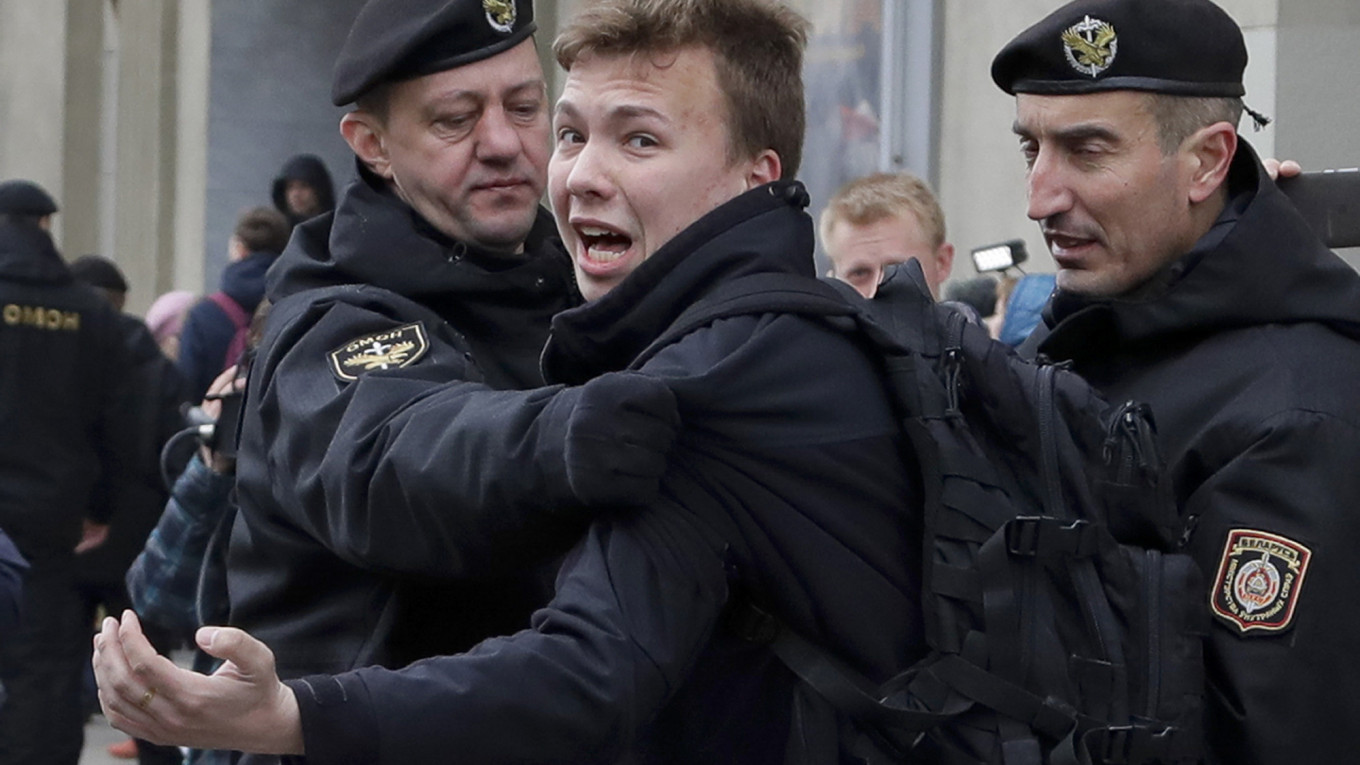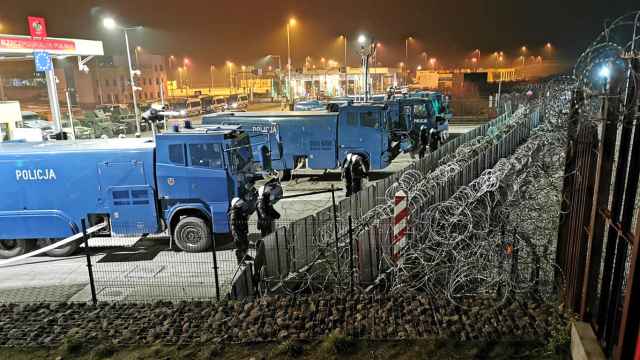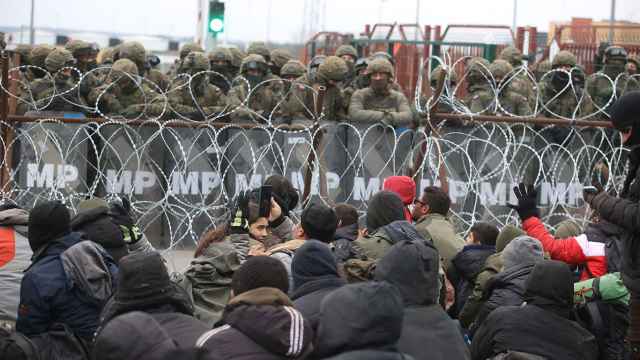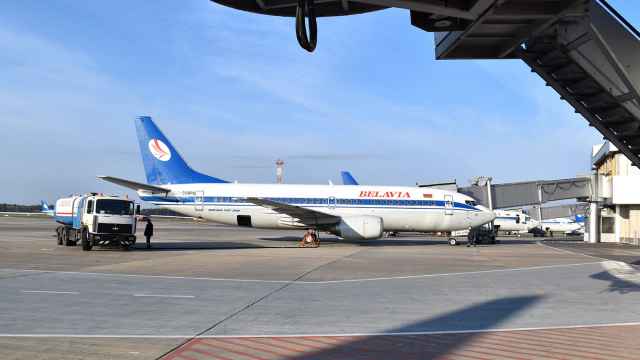Belarusian journalist Roman Protasevich, who was arrested after his plane was forced to land in Minsk, appeared on state television Thursday evening in an interview that rights campaigners say was conducted under duress.
Looking uncomfortable in the video, Protasevich — the co-founder and former editor of opposition Telegram channel Nexta which coordinated anti-government demonstrations — confessed to calling for protests last year and praised Belarus strongman Alexander Lukashenko.
Ahead of the broadcast by Belarus state-run channel ONT, independent rights group Viasna said that Protasevich must have been coerced into speaking by Belarusian security services because he is facing "unfair, but very serious accusations."
"Everything Protasevich will say was said under duress — at the very least psychological duress," Viasna head Ales Bialiatski told AFP Thursday before the interview was broadcast.
"Whatever he is saying now is pure propaganda, under which there is no truthful basis," Bialiatski added.
Protasevich, 26, and his Russian girlfriend Sofia Sapega, 23, were arrested on May 23 after Belarus scrambled a military jet to divert the Athens-Vilnius Ryanair plane they were traveling on.
They were accused of helping to coordinate historic demonstrations that broke out following Lukashenko's disputed re-election last August.
Immediately after their arrest both Protasevich and Sapega appeared in "confession" videos that their supporters said were recorded under duress and are a common tactic of the regime to pressure critics.
Protasevich's parents said at the time their son looked like he had been beaten in the video.
In response to the arrests, the European Union banned Belarusian state carrier Belavia from operating flights to airports in the bloc and discouraged EU-based airlines from flying over the ex-Soviet country.
Authorities waged a brutal crackdown on the opposition and civil society, detaining and imprisoning thousands of demonstrators and pushing opposition leaders into exile. Several people died in the unrest.
A Message from The Moscow Times:
Dear readers,
We are facing unprecedented challenges. Russia's Prosecutor General's Office has designated The Moscow Times as an "undesirable" organization, criminalizing our work and putting our staff at risk of prosecution. This follows our earlier unjust labeling as a "foreign agent."
These actions are direct attempts to silence independent journalism in Russia. The authorities claim our work "discredits the decisions of the Russian leadership." We see things differently: we strive to provide accurate, unbiased reporting on Russia.
We, the journalists of The Moscow Times, refuse to be silenced. But to continue our work, we need your help.
Your support, no matter how small, makes a world of difference. If you can, please support us monthly starting from just $2. It's quick to set up, and every contribution makes a significant impact.
By supporting The Moscow Times, you're defending open, independent journalism in the face of repression. Thank you for standing with us.
Remind me later.






